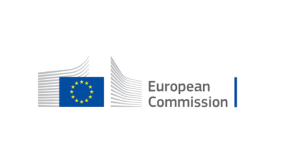PROGENDERING – PROmoting Gender mainstrEaming iN acaDemia through thE enhancement of gendeR equalIty and iNclusion in hiGher education, 2023-1-IT02-KA220-HED-000154344

Project No. – 2023-1-IT02-KA220-HED-000154344
Project title: “PROmoting Gender mainstrEaming iN acaDemia through thE enhancement of gendeR equalIty and iNclusion in hiGher education” (PROGENDERING)
Project duration – 2023-10-01 2026-09-30
Project coordinator – UNIVERSITA’ DEGLI STUDI DI MACERATA – UNIMC
Project leader MRU:Doc. dr. Vida Česnuitytė
Partners: KMOP Education and Innovation Hub – KMOP, SPOLECZNA AKADEMIA NAUK – NAUK, LUDWIG-MAXIMILIANS-UNIVERSITAET MUENCHEN – LMU, VRIJE UNIVERSITEIT BRUSSEL – VUB, MYKOLO ROMERIO UNIVERSITETAS – MRU
Relevance of the project: The proposal credibly aims to contribute to promoting gender equality, inclusion, diversity and respect to differences in the Academia, displaying its relevance by strengthening the capacity of Universities to build inclusive education communities. Matching some EU public policies (e.g. European Education Area by 2025, 2020; Charter of Fundamental Rights of the EU, UN – SDG 2023, etc.), general and specific objectives are clearly outlined and in line with the chosen priorities. However, the chosen priorities should be discussed more comprehensively and convincingly. In particular, the HE priority ‘HE: Building inclusive higher education system’ should be described at a more appropriate level of detail, not showing appreciable innovative elements, while the horizontal priority is addressed in a traditional and already widely explored context. The profile of the partners is convincingly outlined to address the project’s goals. Given the topics chosen, the delineated CSOs involvement is a good asset of the proposal. A convincing rationale, overview and needs analysis, with good references, shows how the proposal would advance the state of the art by contributing to building more inclusive HEIs and fighting discrimination. However, despite some rather original expected outputs (e.g. the Awareness-raising Toolkit for students), its originality should be demonstrated more deeply. Expected results for the well identified target groups are clearly presented and convincingly integrated. Although the complementarity with other similar project (e.g. ‘CONDIVISE’, ‘EQUAL-IST’, ‘FAROS’, ‘EDGE’, ‘GEM’, etc.) is correctly mapped out, this is more oriented towards showing the partners’ experience in the fields than towards supporting a convincing description of the synergy with other actions, while the proposal devotes its effort to discussing its exploitation strategy. The transnationality potential of the proposal is adequately displayed, mainly based on the geographical coverage of the partnership.
The project is funded by the Erasmus+ KA2-Cooperation Partnerships programme.